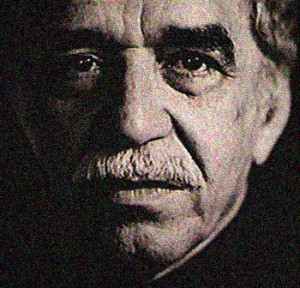 ‘He’s won, he’s won,’ Guillo shouted excitedly.
‘He’s won, he’s won,’ Guillo shouted excitedly.
I couldn’t think what he was talking about. The Ecuadorian bar was filling up with excited revellers ordering brandies, even though it was only eleven in the morning. It was 1982 and Gabriel García Márquez had just won the Nobel prize. It had been announced on Radio Grande de Bahía, so it had to be true. Although Colombian, the town was treating him as if he were a local boy.
My friend Guillo was impressed that he was using the money to fund his own independent newspaper: he had read all Márquez’s books – they were piled high in the local stationery shop, along with the comics and murder stories.
And Gabo remains one of the few recent novelists to combine huge literary acclaim with matching commercial success. When have you ever seen a Martin Amis book in a Tesco?
Márquez was writing of their world, with its perpetual llovizna, that wonderful word for a soft drizzle of rain playing over the dampness of the platanales, the banana-plantations, while the oceano nítido, the bright ocean, stood off in the distance. The predominant mood in his books was one of nostalgia, ‘tratando de recomponer con tantas astillas dispersas el espejo roto de la memoria, trying to reconstitute so many scattered shards of the broken mirror of the memory,’ a nostalgia weighed down with decay. In La Crónica de una Muerte Anunciada (The Chronicle of a Death Foretold), the townsfolk had not been able to find a fridge big enough for the body of the title: there was a police colonel who took a correspondence course in spiritualism; the gold coin they found in the dead man’s corpse was one that he had swallowed when he was six years old and the favourite dish of the archbishop was a soup of cocks’ crests.
I have come back time and again to the way Gabriel García Márquez plays with memory – in some ways every one of his novels could include the ‘Foretold’ tagline as he is a great one for telling you what the plot is going to be at the start of proceedings (‘this is X who will die many years later from unrequited love’), so that you then read to see not what is going to happen but how.
And for the way no novelist since Proust has had a more acute sense of smell than Márquez, see my piece a few years back on Love in the Time of Cholera.
Farewell Letter ~ Gabriel Garcia Marquez
